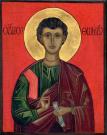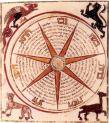
As you may well know, since our December 10 post, “Churches Close Doors on Christmas Day,” there’s been a vibrant—and sadly, sometimes acerbic—conversation among Christians about the wisdom of churches (mostly mega-) deciding not to worship on Christmas Day when it falls on Sunday. For example, at
Jesus Creed, I read some 39 pages of conversation containing Scot McKnight’s original posting and dozens of responses. In his initial post on
December 8 , McKnight, in response to Ben Witherington’s blog, takes the view “that we should be a little more charitable in the discussion,” dropping “some of the caustic, belletristic, and condemnatory language.” I agree. McKnight then proceeds to list nine observations, most of which are worth our attention:
1. After asking if the New Testment teaches a Christmas Eve or Christmas Day worship service, he answers with an obvious “no”; after all, the topic never came up for discussion. In context, however, it may be good to remember that in the Old Testament because “God thought a bundle of days were so important for the Jewish calendar that he gave alws both on the necessity of their annual celebration[s] and he told them just how to celebrate those days,” the Old Testament people of God “did just that.” Nevertheless, “the same God didn’t think the same of Christmas, for there are no legislations about keeping but one ‘holiday’: the Lord’s supper.” As a consequence, we cannot argue that mega-churches are violating any Biblical injunction about Christmas.”
2. McKnight asks about question, more “at the heart of the discussion: does the New Testament teach a Sunday morning worship service? He answers that “there is no clear text legislating that Christians are to meet for worship on Sunday morning.” Admittedly, there are “clear indications that Christians met on Sundays (Acts 20.7; I Cor 16.2, and perhaps Rev. 1.10) and the author of the
Letter to the Hebrews encourages Christians to meet regularly with other believers, but such texts only demonstrate that such Sunday gatherings are precedents for us to consider; as Joe Thorn rightly says, “The precedent is there; there is, however, no commandment.”
3. Assuming that most of the bloggers in the conversation are “low-church Protestants,” McKnight reminds them that their manner of church governance privileges the “local pastor and board of delders/deacons” with decisions about days and times of worship services. “If we believe in such a theory of church government,” McKnight notes, “then we get decisions like this and we have to trust those elders and pastors and church to make good decisions.” McKnight likes Craig Lee’s comment: we might at this point just trust our brothers and sisters to do what is good.
4. McKnight then gently pokes “some in the eye” by noting that he often senses “too much identification of ‘worship’ with ‘Sunday morning’ and ‘being the church’ with ‘attending a Sunday morning service’.” He reminds us that “church” is something we are (not something done on Sunday) and we are the church “all through the week—climaxing,” he says, “at the Lord’s table and in Sunday worship.”
5. We should also consider that first-century “messianic Jewish Christians would have naturally transferred their view of what to do on the Sabbath from the Sabbath to the Lord Jesus Christ.” Because of the paucity of evidence, however, we don’t know the details of their weekend arrangements for worship.
6. By the time of Ignatius of Antioch (
Epistle to the Magesians, 105-115) some Christians had given up Sabbaths for the Lord’s Day; moreover, Justin Martyr (
Apology, 1.67)150-160) is clear: it’s on Sunday that Christians worship as a community.
7. Skipping some nearly two thousand years of intervening history, McKnight next jumps into a consideration of some modern "pragmatics." Frankly, it’s apparent that the mega-churches simply cannot handle the logistics of “having everyone gather at once” on Christmas Day. Willow Creek, for example, has had about 60,000 attend Christmas services, somehow managing by holding a series of services to get them all, service after service in an auditorium that holds about 7500. It’s simply a logistical nightmare, McKnight implies to expect a church, year after year, to service such crowds on Christmas Day.
8. Realizing the above, we ought not unfairly insult our brothers and sisters by suggesting that somehow they are “consumeristic and selfish,” focused on “getting” rather than “serving.”
9. If, however, their Christmas Eve services are “so intense” that “there is nothing left for another service” and if their “performance[s]—productions of cantatas, musicals, theatricals, and so on—are exhausting their energies, then it might be possible to “argue that [such performances]” are worth examining to see if they are worthwhile.
In conclusion, McKnight asks everyone to be “a little more charitable in light of what the New Testament does and does not say. Let’s permit,” he says, “our brothers and sisters, once every seven years, to make decisions that we might not approve of but know that they answer to God, that we answer to God, that it is about worship of God and incarnating the gospel in our world for the good others and the world.”
I agree with much of the above as did others who posted comments running nearly forty pages when I printed them for examination. Importantly, however, many thoughtful Christians raised important qualifications and additional issues. Mark Perry, for example, writes:
Scot, thank you for a very well argued piece. My reaction has more to do with historical, liturgical church practice. Granted most mega-churches are not practicing a high church liturgy, so perhaps you could comment on historical church calender practice as it relates to this “controversy”.
My overall concern is not with mega-churches but the state of the American church that treats God as something to be consumed. I know I am being a bit simplistic and general; there are always exceptions. The American church (for the most part) does a good job of getting people in the door and many are coming to Christ, but how do we move people from a consumption mindset to being willing to deny oneself and take up their cross? It seems if we were doing a better job of that, the nature of church would change. We would be a counter-cultural entity reflecting more of the values of the Kingdom. Cancelling church on Christmas doesn’t seem to fight those consumption tendencies.
McKnight replies:
Mark, the entire liturgical issue is up front and center to this issue, but no one seems to be focusing on it. If Sunday worship is leitourgia, and that means sacramental and liturgical readings of Scripture, then there is not one argument left for cancelling services — or for productions and performances for Christmas Eve.
You may wish to read the entire document (be sure to start with the December 8 posting in
Jesus Creed) to see the breadth and depth of the full conversation. For those of you who have read Ben Witherington’s original post, you may be interested in reading his reply to McKnight:
Hi Old Friend:
Well its clear enough we disagree on this one. And I think I have figured out why. I disagree with the theology that thinks we are the church all through the week. We are Christians all through the week to be sure, but frankly we are not the church unless we are doing something Christian together as the body of Christ.
Furthermore, since worship is the prime mandate,though not all ‘church activities’ involve worship, nevertheless we are not being the church unless we are ‘having church’, gathering together in worship every week. In light of the praise worship movement over the last decade which has taught us a lot about the yearning to praise God, a yearning I would suggest that has been programmed into us by God, I would have thought we had learned by now how important it is, especially while the world is watching closely as it is at Christmas, to be holy examples of those who show what true worship is, especially on a day like the ‘Feast of the Incarnation’.
Now I admit to being a high church Methodist and I love the Christmas celebration especially. Some of my own most spiritually formative moments have come in Christmas services, including Christmas eve ones. And so it is hard for me to imagine that not having a Christmas service while the world is watching closely is anything but : 1) laziness; 2) self-centeredness; 3) a failure to take into account what sort of witness it gives,4) capitulation to cultural agenda and so on.
Perhaps I am wrong, but it also seems to me that the Bible implies and certainly early church history suggests that there was and ought to be a particular day of worship each week, that day being resurrection day, the Lord’s Day (not necessarily the day the Lord’s Supper was served though perhaps that as well). And there is a double reason to be present when Christmas Day comes on a Sunday.
I would rather stand with the second century Christians who were incarcerated in Asia Minor and tortured for meeting on the first day of the week and singing songs to Christ, than with those who would rather spend more time at home unwrapping gifts for themselves. Going to church is of course voluntary, no one is holding a gun to anyone’s head especially not if they went to one or more Christmas eve services. My prime concern here is not with Christians who choose one service over another. My prime concern is with ministers and churches who decide to close on Christmas rather than offering a service for those who would like to come.
I am thinking as well of my many friends in Russia, who have fought so hard to have Christian worship on Sunday openly without persecution. They would not think of closing on Christmas Day or any other Sunday. Celebrating Jesus’ birth on that day is a right too recently won. I was with them on Pentecost Sunday last June with 4,500 folks in the old Commmunist Convocation building praising God for about four hours non-stop. It was clear to me that this was the heartbeat, this was what God had in mind for us, especially as we celebrate the crucial moments in Jesus’ story.
Blessings on this blog,
Ben Witherington
______________
Perhaps it’s time to stop here now that you have some sense of where the conversation has been and will likely continue to go. Over Christmastide I will be musing over all that I’ve read, asking the Holy Spirit to guide my thinking and heart’s pondering; then I’ll post again to share with you some discernments. Why don't you do the same in the days ahead.
In the meantime, wherever you are in worship during Christmastide, I wish you a blessed celebration of our Lord’s Nativity--in your personal life, within the life of your Christian community--and whenever and however you and your friends introduce Jesus to the world.
 Since Sunday I'm reading Green and Hooper's C.S. Lewis: A Biography (New Yoirk: Harcourt, 1974) and this morning, unable to sleep from 3 to 4, I copied this passage into my journal:
Since Sunday I'm reading Green and Hooper's C.S. Lewis: A Biography (New Yoirk: Harcourt, 1974) and this morning, unable to sleep from 3 to 4, I copied this passage into my journal:










